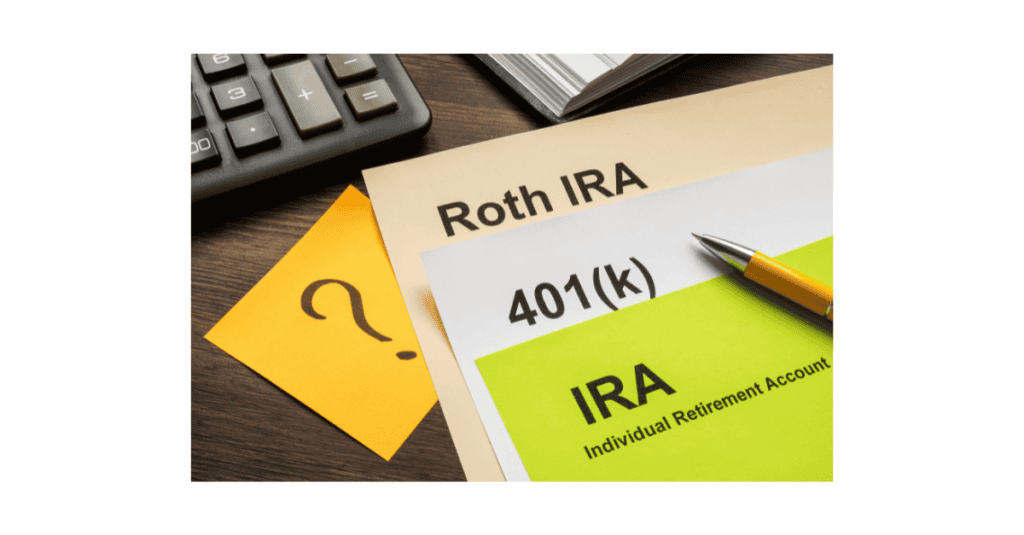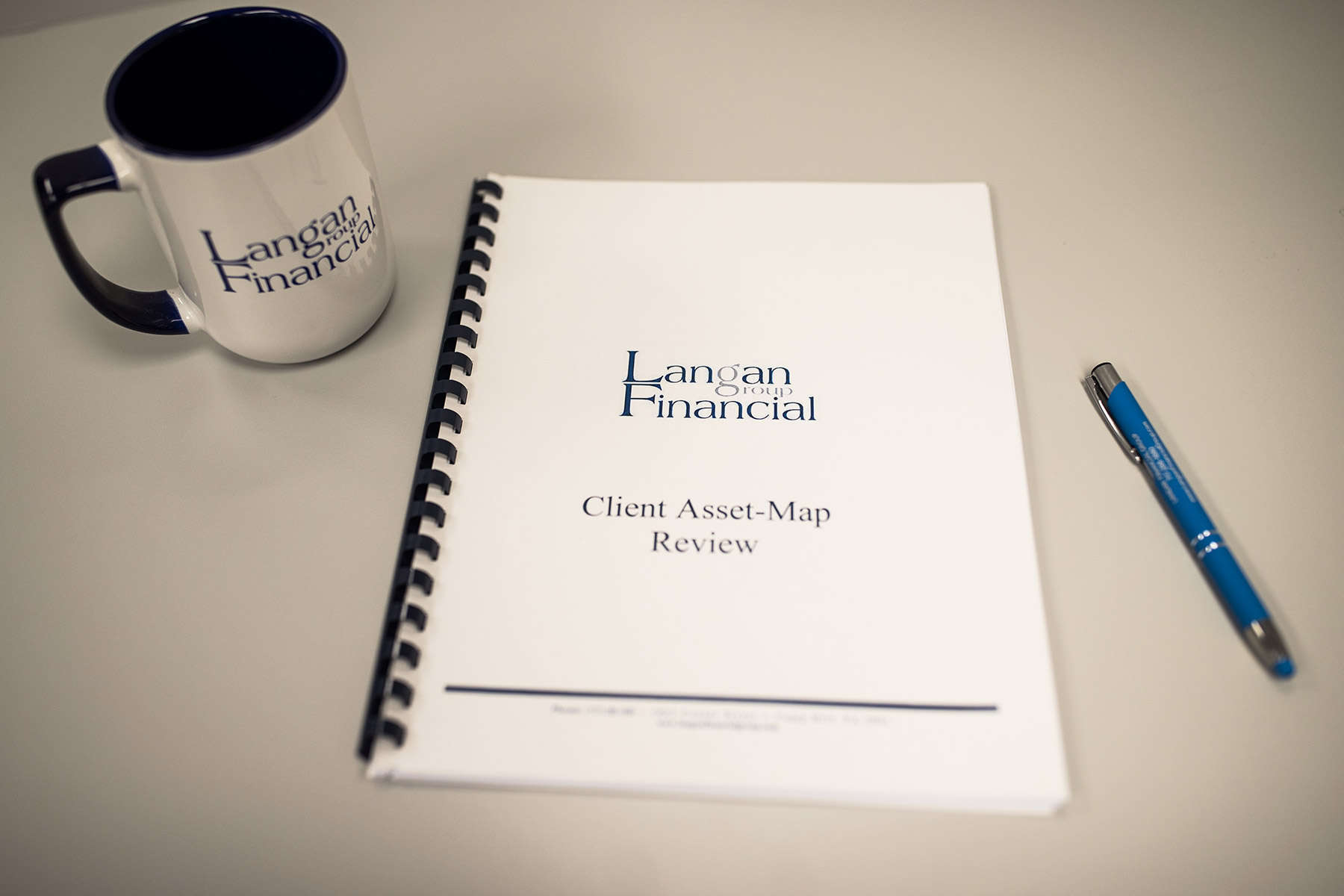When an employee separates service from an employer with a 401(k), they must determine what to do with the retirement account. With the stress of change, sometimes determining what to do with your group retirement plan falls to the wayside. Adding on top having to figure out the options, it can be easier to try and ignore your account, than act on it. This crossroads could lead to two paths, helping you work towards your retirement and financial independence or delaying your financial goals. Let us help you simplify your process and share your options, including the pros and cons so you can be more informed.

Can I Leave my 401(K) with my Old Employer?
Yes, you can leave your 401(k) with your old employer. There are multiple reasons that an employee may decide to leave their old 401(k) where it is. These include:
It is more convenient if:
- The new employer does not have an employer-sponsored retirement plan
- There is no auto portability feature
- The 401(k) fees are reasonable and negligible compared to an IRA
Avoid paying taxes on a 401(k) rollover:
- If the rollover is not done correctly, it can result in taxes and penalties which may cause some accountholders to deter from rolling over their 401(k).
- This can be mitigated by requesting the assistance of the plan sponsor or a financial advisor.
Why Would I Not Leave My 401(K) with My Old Employer?
Some possible downsides of leaving the 401(k) with a former employer are:
- Limited investment options
- A 401(k) offered by a previous employer may have limited investment options which can make it harder to have a suitable, diversified investment allocation.
- High Fees
- If a 401(k) has high fees, the participant, even if separated from service will still have to pay the fees for their account. This is where it would be more beneficial to move into an IRA, where the account holder can choose the company that has the best fees.
- Lack of control
- When leaving a sponsoring employer, the participant may lose some control over the account, such as the ability to make contributions, investment changes, or withdrawals.
- Unconsolidated Funds
- If somebody does not roll over a 401(k) when changing employers and participates in a new retirement plan, their retirement assets will be divided.
- This can be confusing and if done through multiple employers, it is possible to have multiple accounts which can be easy to forget about.
Roll Your 401(K) Over to Your New Employer
Rolling over your 401(k) to your new employer can have multiple benefits, depending on the plan. The one benefit that is standard is the continuity of savings.
Rather than having two different retirement plans, a 401(k)-account holder can consolidate both accounts into one for ease of management. When this happens, the funds will roll over to the new account and contributions can continue in this account (once eligibility is met).
In addition to continuity, other benefits you may see, depending on the plan include:
- The new employer’s plan will likely have different investment options, which could be a pro or could be a con. This fully depends on personal suitability and what will be the most appropriate.
- Lower Fees
- The new employer’s retirement plan will likely have different fees, but whether they are lower or higher will require a fee comparison.

Can I Roll My 401(K) into an IRA?
Yes, you can!
Rolling over a 401(k) into an IRA can be a good option for somebody who is moving to a new company that does not offer a retirement plan or is retiring.
401K to IRA Roll Over Benefits
- Control over Investment Options and Fees
- This rollover opens up the possibility of a wider range of investment options.
- An employer-sponsored retirement plan will have a set investment menu and with an IRA, an account holder can invest in any of the funds available to the holding company.
- Avoid Penalties
- When leaving an employer, they may force a cash out of the 401(k), requiring the accountholder to pay taxes and penalties.
- One way of preventing this is to roll out the 401(k) into an IRA, where it can stay until retirement.
- Possibility of a Roth Conversion
- It is possible to convert a pre-taxed 401(k) into a Roth IRA.
- This means the accountholder will pay taxes on the money when it is converted, but all the withdrawals in the future will be tax-free.
- Whether or not a Roth conversion is suitable depends on the current situation of the account holder.
401(K) to IRA Roll Over Cons
The IRA rollover can be a great opportunity to take control over investments, however, it is not always going to be the best option. There are some possible downsides that should be reviewed before any decisions are made.
- Complexity
- IRAs can be more complex due to the fact that they require a lot of decision-making, requiring an account holder to do their own research and make their own investment decisions.
- Limited Creditor Protection
- 401(k) assets are protected in the event the company faces a lawsuit or bankruptcy, whereas an IRA does not have the same protection since it is not sponsored by ERISA
- No Loan Possibility
- With an employer-sponsored retirement plan, there may be a provision that allows for loans through the plan. It is not present in every plan, although if it is available, it is important to note that this is not a feature available in IRAs.

Take a Distribution from Your 401(K)
Taking a distribution from a 401(k) is an action that should be consulted with a financial professional. With a distribution, there are likely tax implications that can reduce retirement savings. It is important to review all of the options before deciding to take a distribution from a 401(k).
Taking a distribution from a 401(k) can be a great idea if the accountholder is 59 1/2 or older. They are able to take distributions penalty-free to replace income during retirement.
In addition to retirement, there are a few circumstances where distributions can be made from a 401(k) without penalty.
- Education and Medical Expenses
- Some 401(k)s do allow for the participant to withdraw money from their account penalty-free to pay for specific education and medical expenses.
- It is important to confirm with the plan sponsor or a financial specialist to make sure this is available to you.
Can I Cash Out My 401(K) After Termination?
Cashing out a 401(k) is an option that is available to an accountholder, but in general, it is generally not recommended because of the significant penalties and tax implications. There are some situations when it may be recommended, but they are more likely to be a last resort.
- Financial Hardship
- This may be a suitable decision in certain situations of financial needs, such as facing foreclosure, eviction, or basic living expenses.
- Career Changes
- During a job change, some people may choose to cash out their 401(k) rather than transferring it to the new employer’s plan.
- This could be because the balance is small, but it is not recommended because there will be tax implications.
Many different possibilities can happen to a 401(k) when changing employers. This can cause the process to look overwhelming, however, when working with the assistance of a financial professional, the options should be analyzed, and weighted for a proper decision to be made.

What is the Safest Place to Rollover a 401(K)?
The safest place to roll over a 401(k) is to an IRA with a reputable financial institution or an employer-sponsored retirement plan.
Keep in mind that the safety of retirement assets does not only pertain to the risk from investments but also the risk of cybersecurity threats.
What Can You Roll a 401K Into Without Paying Taxes?
You can roll a 401(k) into another tax-advantaged retirement account without paying taxes on the rollover. These accounts most commonly include:
- Traditional IRA for a traditional 401(k)
- Roth IRA for a Roth 401(k)
- New employer’s qualified retirement plan
Can You Roll a 401(K) Anytime?
You cannot roll over a 401(k) at any time you want. You must be eligible due to one of the following circumstances:
- Separation from service or job change
- Attaining the age of 59 ½ (unless a different age is defined in the plan document)
How Much Does It Cost to Roll Over a 401(K)?
The cost of rolling over a 401(k) will vary depending on the financial institution and service providers involved in the process.
Some providers will assess a transfer fee when rolling over a 401(k). Another aspect to consider is a cost comparison of the old and new product fees.
How Do I Roll Over a 401(K)?
To roll over a 401(k), the best option is to discuss it with a financial advisor.
About the 401(K) Advisor Authors

Alexander Langan, J.D, CFBS, serves as a Financial Advisor at Langan Financial Group. In this role, he manages investment portfolios, acts as a fiduciary for group retirement plans, and consults with clients regarding their financial goals, risk tolerance, and asset allocation.
With a focus on ERISA Law, Alex graduated cum laude from Widener Commonwealth Law School. He then clerked for the Supreme Court of Pennsylvania and worked in the Legal Office of the Pennsylvania Office of the Budget, where he assisted in directing and advising policy determinations on state and federal tax, administrative law, and contractual issues.
Alex is also passionate about giving back to the community, and has participated in The Foundation of Enhancing Communities’ Emerging Philanthropist Program, volunteers at his church, and serves as a board member of Samara: The Center of Individual & Family Growth. Outside of work and volunteering, Alex enjoys his time with his wife Sarah and their three children, Rory, Patrick, and Ava.

Harry Claypool currently serves as an Associate 401(k) Advisor at Langan Financial Group where he assists Alex in servicing retirement plans, preparing plan reviews, and handling administrative work. In his free time, Harry enjoys visiting new restaurants, spending time with friends and family, and watching the Eagles.
About Langan Financial Group: 401(K) Advisor Experts
Langan Financial Group is based outside of Harrisburg and York Pennsylvania.
We are an independent financial planning firm established in 1985, offering a broad range of financial planning services. With over 100+ five star reviews and 10+ awards, we provide an open architecture platform.
This allows our advisors access to a diverse range of products, free from any sales quotas. Our team of 9 financial experts, each with unique specialties, enhances our ability to focus on delivering value to our clients.
Disclosure
Securities offered through Cambridge Investment Research, Inc., a Broker/Dealer, Member FINRA/SIPC.
Investment Advisor Representative, Cambridge Investment Research Advisors, Inc. a Registered Investment Advisor. Cambridge and Langan Financial Group, LLC are not affiliated.
Cambridge does not offer tax or legal advice.




